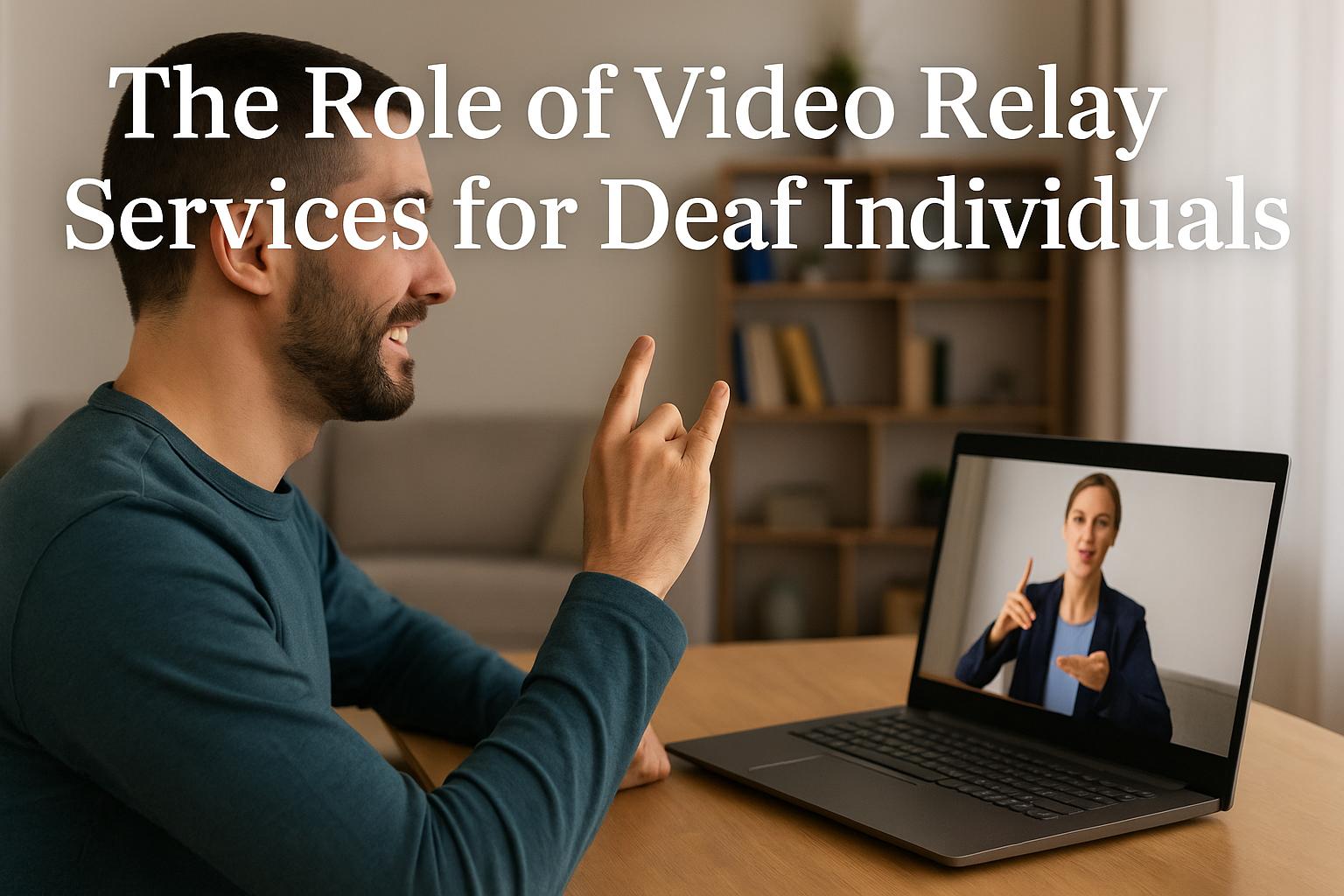The Importance of Video Relay Services (VRS)
Video Relay Services (VRS) have emerged as indispensable communication tools for individuals in the deaf community, enabling them to maintain seamless conversational interactions that involve the richness and subtlety of voice and inflection. Through VRS, users can communicate with a sign language interpreter via a live video call, thus bridging the communication gap between deaf individuals and the hearing counterparts they wish to engage with—be it individuals or businesses. This service is pivotal in enhancing both personal and professional interactions for people who are deaf.
Functionality of VRS
The functionality of VRS is rooted in its streamlined and effective communication process. The interaction begins with a deaf individual initiating a call using their video-enabled device, which connects them directly to a proficient sign language interpreter. This interpreter subsequently places a voice call to the intended hearing party. Throughout the call, the interpreter plays a critical role, transforming the deaf individual’s sign language into spoken language for the hearing recipient and converting the hearing individual’s voiced responses back into sign language. This real-time interpretation facilitates fluid, natural conversations without the additional burden or delay associated with typing or written text communication.
Accessibility and Convenience
One of the most important attributes of VRS is its accessibility. With modern technological advancements, VRS can be easily accessed via various platforms, including smartphones, tablets, and computers. This level of accessibility allows deaf individuals to initiate communication from virtually any location, whether at home, at work, or on the go. This mobility empowers users to engage in everyday activities seamlessly, such as making personal appointments, interacting with customer service representatives, or participating in professional business meetings and conferences.
Impact on Independence
VRS significantly bolsters the independence of deaf individuals by allowing them to communicate in their preferred language without the need for intermediaries. This self-reliant communication minimizes the necessity of relying on others for fundamental communication tasks, thereby promoting greater self-sufficiency. Additionally, this independence paves the way for active participation in various social and economic activities, contributing to an enhanced quality of life. Furthermore, the availability and use of VRS align with broader accessibility goals and initiatives that aim to provide equal communication opportunities to all, regardless of hearing abilities.
Regulatory Support and Development
Recognizing the transformative impact of VRS in promoting equitable communication access, many governments and regulatory bodies have instituted policies aimed at supporting and further developing these services. In numerous regions, there are mandates for telecommunications companies to offer VRS, often with financial assistance provided by government funds to ensure the service remains affordable and widely accessible. These regulatory frameworks reflect broader social commitments to foster inclusive communication technologies.
Governments and advocacy organizations continually work towards enhancing these frameworks to keep pace with technological advancements and to meet the evolving needs of the deaf community. For those interested in exploring more in-depth information on regulatory frameworks and the intricate functioning of VRS, several resources from governmental agencies or other dedicated organizations can be of interest. Here are a few starting points: FCC Consumer Guides, National Association of the Deaf.
Conclusion
In summation, Video Relay Services are indispensable communication tools that significantly enhance the ability of deaf individuals to participate fully in society. By providing a means to effectively engage in conversations, VRS ensures inclusivity and diminishes the communication barriers traditionally faced by the deaf community. As technology evolves and accessibility measures continue to advance, VRS promises to adapt and offer even more refined and comprehensive communication solutions for deaf individuals, ensuring that they have equal opportunities to engage with the world around them. Consequently, the ongoing development in VRS technologies holds great promise for further improving the quality of life and engagement opportunities for those who are deaf.
